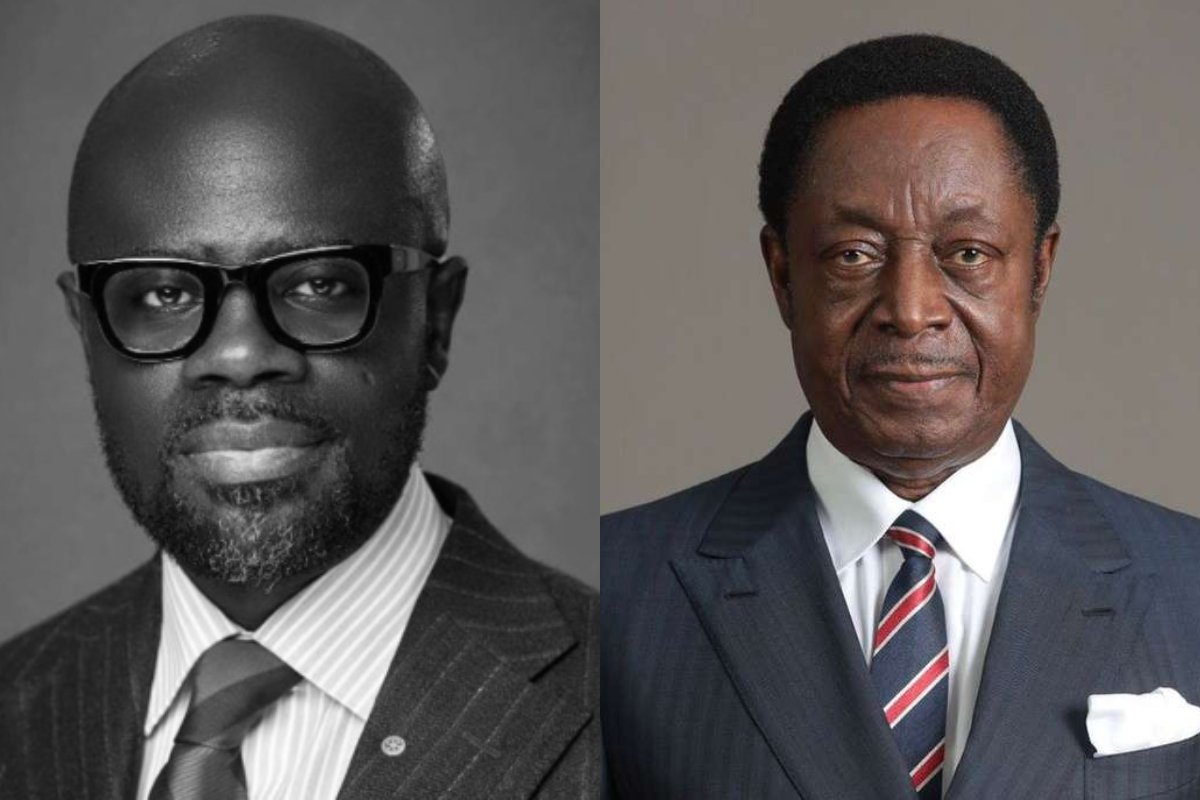Published
3 months agoon
By
Adubianews
Dean of the University of Professional Studies (UPSA) Law School, Prof. Ernest Kofi Abotsi, has suggested that former Finance Minister and uniBank founder, Dr. Kwabena Duffuor, may have been used as a scapegoat in the State’s prosecution of high-profile individuals linked to Ghana’s banking sector collapse.
His remarks follow the Attorney-General’s filing of a nolle prosequi in the criminal case involving Dr. Duffuor and seven others. Speaking on JoyNews’ Newsfile, Prof. Abotsi warned about the dangers of prosecuting individuals in novel legal contexts without established precedent.
“First of all, when a court or an Attorney-General is making decisions on the preference of charges or the determination of guilt on a person, one of the key factors that are considered is the issue of the stability, whether or not the offense, the person is a repeated offender, and in this context, whether or not anybody has even been punished in respect of a similar behavior in the past,” Prof. Abotsi explained.
He further noted: “It would seem that there is a sense of scapegoating here, even if this had happened in the past, perhaps there hasn’t been a prosecution, or perhaps there hasn’t been, you know, the state hasn’t chased after this to ensure that there’s a refund. So the accused person involved may perhaps be facing a scapegoating scenario, being scapegoated for the first time to demonstrate the state’s resolve not to tolerate this move into the future.”
Prof. Abotsi also discussed the moral dilemma confronting prosecutors in cases where no prior legal template exists:
“And for scapegoat purposes, one is confronted with both punishing harshly to make a statement that this shouldn’t happen again, but also one is confronted with the reality that this person is truly the first person being punished. Not only is there no template, but this person, unfortunately, is being used as a scapegoat, so should not unnecessarily be unduly punished.”
He added that such unique situations create tension for decision-makers: “These considerations can pull a decision maker in different directions, and the Attorney-General will have to make a consideration of whether or not the person should be unduly punished, given the fact that he’s the first person to face similar charges moving forward into the future.
“So I suspect that the AG might have confronted this, the fact that we haven’t had anybody facing the similar punishment in the past, and so we shouldn’t unnecessarily, unjustifiably punish him, or rather subject him to a rather high standard when others might have done this in the past… so the skill goes in fact might have made this money so that’s one.”
The Attorney-General, through Deputy AG Dr. Justice Srem-Sai, announced on July 22 the State’s decision to withdraw the case, citing the recovery of more than 60% of the alleged financial losses as the primary reason.
The case, The Republic v. Kwabena Duffuor & 7 Others, originated from the collapse of UniBank in 2018. The Bank of Ghana declared the bank insolvent, accusing shareholders and related parties of misappropriating over GHS 5.3 billion. Dr. Duffuor was alleged to have received over GHS 663 million, knowing it was the proceeds of a criminal offense.
Although the nolle prosequi discharges the accused, it does not equate to acquittal. The Attorney-General’s office stated that the withdrawal does not imply a lack of wrongdoing but reflects a pragmatic step taken in the interest of national asset recovery.
Prof. Abotsi’s comments have since reignited debate over the fairness and consistency of Ghana’s legal system in handling financial sector offenses. Critics question whether the prosecution of Dr. Duffuor was an isolated attempt to make an example of one individual rather than a demonstration of systemic accountability.

























